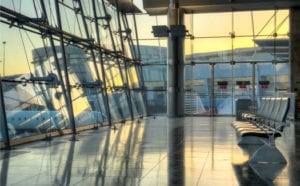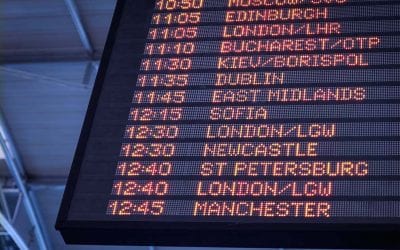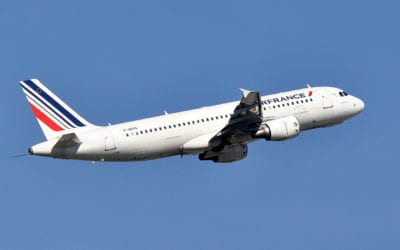Airports don’t need any higher passenger fees — we pay enough! Get more money from local communities.

Over the past decade, air travel has grown much faster than the economy. Yet U.S. airports’ spending on infrastructure fell 24 percent between 2013 and 2017 compared with the previous five-year period, according to North America’s Airports Council International.
Now the infrastructure needs to catch up. Airlines, as well as local governments and federal agencies, will invest $100 billion in U.S. airports over the next five years, ACI estimates, more than at any point on record. Hub airports — those used to connect flights — will spend the most, because that’s where U.S. airlines have focused their expansion.
As airport associations and Chambers of Commerce search for more funding, the easiest path is to go through Congress rather than ask their constituents for more funding. However, the local businesses are the greatest beneficiaries of the economic power of airports.
More than once, I have faced condescending comments such as, “What is it that you don’t understand about user fees, Mr. Leocha?”
My answer is always the same. I ask this question, “Who is the bigger user? The passenger who flies in and out of an airport, perhaps four times a month? Or, the local owner of a business or office complex next to the airport who uses the airport to make money 365 days a year?”
For me, the answer is obvious. However, communities have been using federal fees paid for by passengers to pay off long-term construction bonds and for other airport-related infrastructure needs. In some cases, passengers are picking up the full cost of operating the airport. Passengers pay parking fees, taxi surcharges, food court and shopping override fees, and passenger facility charges (PFCs). Plus, ultimately, passengers are the ones who pay airline take-off and landing fees. Many times, the local community businesses never have to reach into their pockets for funding.
Simply, that is not fair.
Here is a letter that Travelers United has sent to the The Wall Street Journal.
Your article talks about increases in airport fees for airlines.
Travelers United, the largest travel advocacy group in DC, has been
working for years to keep a lid on the passenger facility charge
(PFC), an airport fee paid by every passenger when they fly. Airports,
Chambers of Commerce, and Congress justify it as a user fee.Airports do not need more fee income from passengers. They need more
income from the surrounding airport communities. Who is a bigger
“user” of the airports? The passenger who takes off and lands once a
month? Or, the surrounding community and businesses that benefit 24/7
every day of the year?Every airport director speech starts with, “Our airport is the
economic driving engine of our community/region.” Currently,
passengers pay all fees either directly through the PFC or indirectly
through airline user fees. Meanwhile, surrounding communities get a
free ride using this economic engine.It is time that airport funding begins to impact all of the users of
airports. It is time that the surrounding communities nearby
commercial property owners and airport-related businesses begin to pay
their fair share.Sincerely,
Charles Leocha, Travelers United
As Congress searches for ways to pay for the upcoming infrastructure bill, they should not be raising the airport fees for passengers. We already are paying far more than our fair share.

Charlie Leocha is the President of Travelers United. He has been working in Washington, DC, for the past 14 years with Congress, the Department of Transportation, and industry stakeholders on travel issues. He was the first consumer representative to the Advisory Committee for Aviation Consumer Protections appointed by the Secretary of Transportation from 2012 through 2018.



